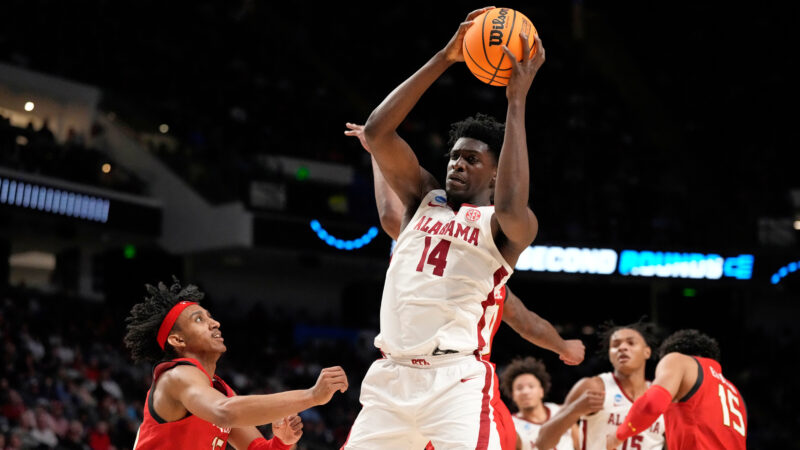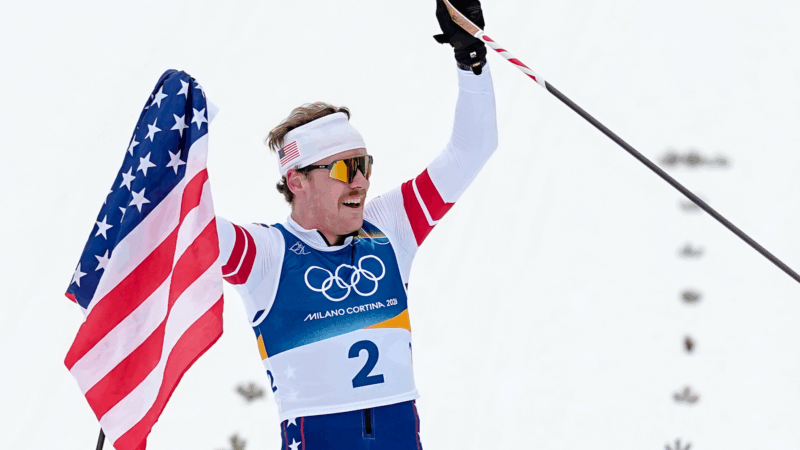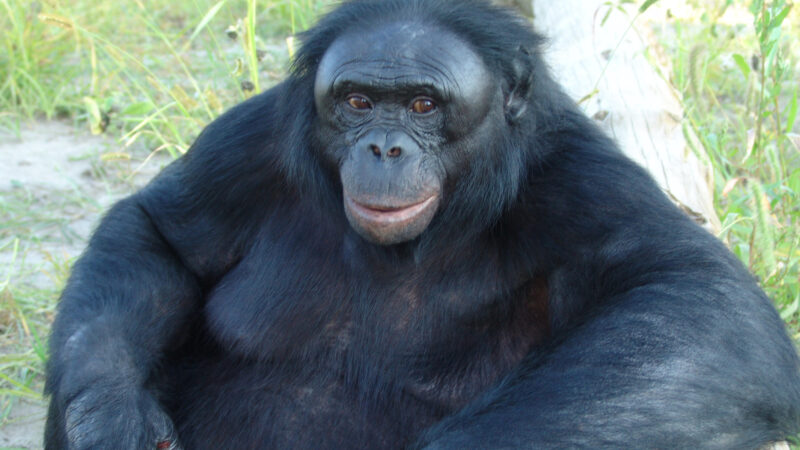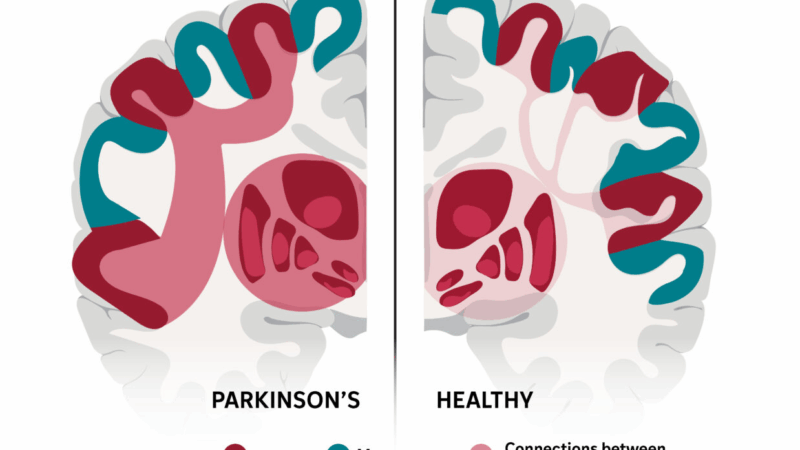Supreme Court to decide if states can ban transgender girls in sports
The U.S. Supreme Court dove back into the culture wars full steam Thursday, agreeing to hear two cases in the fall — from Idaho and West Virginia — that test state laws banning transgender women and girls from participating in sports at publicly funded institutions.
Twenty-seven states have enacted these laws, with supporters saying they are needed to ensure fairness in athletic competition and to prevent transgender female athletes from having an unfair advantage. Opponents counter that the laws discriminate based on sex and thus that they violate both the Constitution’s guarantee to equal treatment under law and Title IX, the federal law enacted in 1972 that mandates equal treatment in all athletic programs receiving federal funds.
That covers just about every public school in the country, from first grade through college.
The participation of transgender athletes in women’s sports, though extremely rare, has become the newest flashpoint in the modern culture wars, especially after the Trump campaign last year made the participation of transgender people in many walks of life a huge issue.
Upon his taking office this year, Trump immediately issued executive orders to ban transgender women and girls from sports, in addition to ordering all transgender individuals out of the military, and requiring transgender individuals getting a passport to list their sex assigned at birth.
While prominent Democrats stayed mostly silent on this issue during the presidential campaign, several members of the party, including California Gov. Gavin Newsom have since said that they don’t think that allowing transgender women in big-time sports is fair.
In fact, despite the brouhaha over the issue, there are in fact, few transgender women playing in major sports leagues. NCAA President Charlie Baker told a Senate panel last year that the number is fewer than 10. Moreover, the participation by transgender athletes is often uneventful in terms of the ultimate results, especially with younger children, and even older ones who play club sports. After all, the numbers of transgender people in the general population is under 1%.
But, when it gets to big-time competition in the NCAA and the Olympics, it gets a lot more complicated. In fact, one of the briefs filed in this case is signed by 102 female athletes and family members who endorse the state bans, saying it’s not fair to have a person, assigned male at birth, with greater strength and speed, competing against a woman or girl.
Signatories to the brief include members of the LGBTQ community, like former tennis star Martina Navratilova, as well as other female Olympic champions.
Indeed, late last year, several big-time collegiate women’s volleyball teams forfeited matches against San Jose State, refusing to play them because one of their players was a transgender woman.
Until Trump’s executive order, all the big sports associations, including the NCAA, the U.S. Soccer Federation, and the U.S. Olympic Committee allowed most transgender women to compete, though they often required proof that the athletes were taking hormones or puberty blockers. And transgender athletes almost never prevailed or dominated in team or individual sports, until a few aced out women who otherwise would have won medals.
The Supreme Court’s decision to hear the case testing the transgender sports ban follows the court’s 6-to-3 decision in June that upheld state laws banning gender-affirming care for transgender minors. The decision in that case, including a concurring opinion by Justice Amy Coney Barrett, would seem to suggest that the odds will similarly favor the state bans in the sports case.
Indeed, just this week, the University of Pennsylvania agreed to the Trump administration’s demands to end transgender women’s participation in sports. The deal followed a government investigation of a transgender athlete at Penn, Lia Thomas, who became the first transgender woman to win an NCAA Division I title.
The cases that the court will hear next fall involve two laws, one from Idaho the other from West Virginia. The Idaho Fairness in Women’s Sports Act prohibits transgender women from participating in women’s sports from the beginning of primary school to university. Idaho argues that the law is necessary because of “inherent, psychological differences between males and females result in different athletic capabilities.”
“Female athletes have become bystanders in their own sports,” Idaho Attorney General Raúl Labrador argued in the state’s application for Supreme Court review, “as male athletes who identify as female have taken the place of their female competitors—on the field and on the winners’ podium.”
A transgender woman, Lindsay Hecox, sued the state, arguing that the law unconstitutionally violated her rights. As a freshman student at Boise State University, Hecox had participated in the university’s club sports teams and feared the law would stop her from trying out for the school’s NCAA teams. In her brief to the Supreme Court, she said that in the end she didn’t qualify for the NCAA teams because she was, in her words, “consistently running slower than her cisgender women competitors.”
The second case, from West Virginia, was brought by Becky Pepper-Jackson, then 12 years old, who had no aspirations to playing big-time sports. Representing the family, the ACLU says that Becky receives “puberty-delaying treatment and estrogen hormone therapy,” so she “has not experienced and will not experience endogenous puberty.”
According to her lawyers, Becky was “welcomed by teammates and coaches” on the track and field team and “has not had any problems with children on other schools’ teams.”
The state, however, argues, “Female athletes have been demoralized, as they have been pushed further down the competitive ladder, out of tournaments, and off their teams.”
Transcript:
AILSA CHANG, HOST:
The U.S. Supreme Court dove back into the culture wars full-steam today. It agreed to hear two cases in the fall that test state laws banning transgender women and girls from participating in sports at publicly funded institutions. NPR legal affairs correspondent Nina Totenberg joins us now. Hi, Nina.
NINA TOTENBERG, BYLINE: Hi there.
CHANG: So how widespread are these state bans?
TOTENBERG: Something like 27 states have enacted these laws, with supporters saying they’re needed to ensure fairness in athletic competition and to prevent trans athletes whose sex at birth was male from having an unfair advantage. Opponents of the laws say they discriminate based on sex and, thus, that they violate both the Constitution’s guarantee to equal protection of the law and Title IX, the federal law enacted in 1972 that mandates equal treatment in all athletic programs receiving federal funds. So that covers just about every public school in the country from first grade through college.
CHANG: Right, OK. And tell us why this has become such an important issue recently.
TOTENBERG: Transgender participation in women’s sports, though extremely rare, has become the newest flashpoint in the modern culture wars, especially after the Trump presidential campaign last year made transgender participation in many walks of life a huge issue. Upon his taking office this year, Trump immediately delivered, issuing executive orders to ban transgender women and girls from sports in addition to ordering all trans individuals out of the military and requiring trans individuals getting a passport to list their sex at birth, not their trans gender.
CHANG: Well, how many transgender women and girls are currently playing sports at all levels? Do we know?
TOTENBERG: Very few. At least the NCAA chair, Charlie Baker, told a Senate panel last year that the number is fewer than 10. It’s rare and often uneventful, especially with younger children and even older ones who play club sports. And remember that the number of transgender people in the general population is under 1%. But when it gets to big-time competition in the NCAA and the Olympics, it gets a lot more complicated. In fact, one of the briefs filed in this case is signed by 102 female athletes and family members who side with the states in these cases, saying it’s just not fair to have a person born as a boy, with greater strength and speed, competing against a woman or girl.
And it’s interesting to see who some of the people are on that brief, including members of the LGBTQ community like former tennis star Martina Navratilova and female Olympics champions. And late last year, several big-time collegiate women’s volleyball teams actually forfeited matches against San Jose State, refusing to play them because one of their players was a transgender woman.
CHANG: Right. Well, what are the NCAA rules on all of this?
TOTENBERG: Well, all the big sports associations, including the NCAA, the U.S. Soccer Federation, the Olympic Committee, they all allowed most trans athletes to compete, though they often require proof that the athletes were taking hormones or puberty blockers. And trans athletes almost never prevailed or dominated until a few aced out young women who otherwise would have won medals. Of course, that’s changed since the Trump executive order.
CHANG: And real quick, Nina. I mean, during this past term at the Supreme Court, the justices upheld state laws that ban gender-affirming care for transgender minors. Given that, what do you think the prospects are for this case in the next term?
TOTENBERG: I would say that the hints from the opinions in that case are pretty strong in favor of the states banning transgender athletes.
CHANG: That is NPR legal affairs correspondent Nina Totenberg. Thank you, Nina.
TOTENBERG: Thank you.
Judge rules 7-foot center Charles Bediako is no longer eligible to play for Alabama
Bediako was playing under a temporary restraining order that allowed the former NBA G League player to join Alabama in the middle of the season despite questions regarding his collegiate eligibility.
American Ben Ogden wins silver, breaking 50 year medal drought for U.S. men’s cross-country skiing
Ben Ogden of Vermont skied powerfully, finishing just behind Johannes Hoesflot Klaebo of Norway. It was the first Olympic medal for a U.S. men's cross-country skier since 1976.
An ape, a tea party — and the ability to imagine
The ability to imagine — to play pretend — has long been thought to be unique to humans. A new study suggests one of our closest living relatives can do it too.
How much power does the Fed chair really have?
On paper, the Fed chair is just one vote among many. In practice, the job carries far more influence. We analyze what gives the Fed chair power.
This complex brain network may explain many of Parkinson’s stranger symptoms
Parkinson's disease appears to disrupt a brain network involved in everything from movement to memory.
In a world built for sitting, here’s how to stay active — even when stuck inside
In the office, classroom and living room, working and relaxing mean sitting still. Our bodies evolved without chairs. Here are some tips for getting out of your seat and moving — even on cold days.








